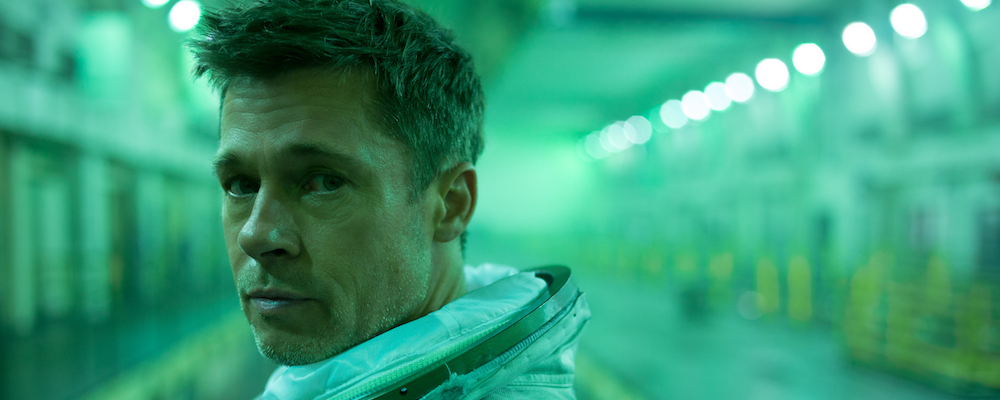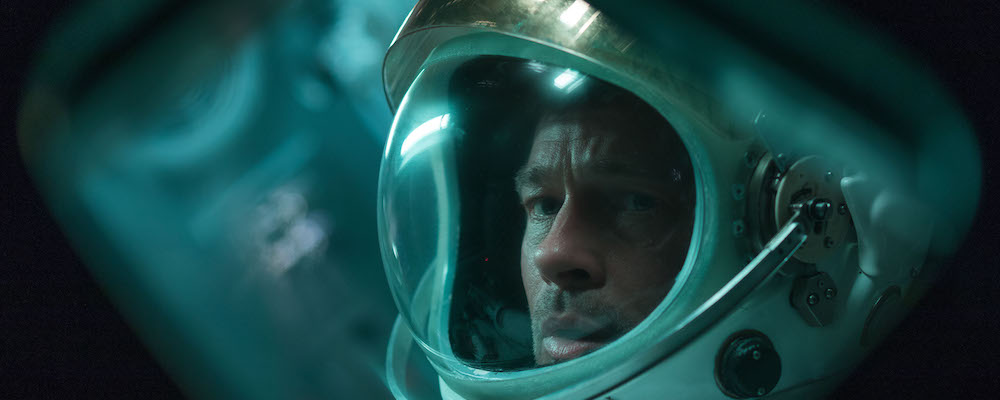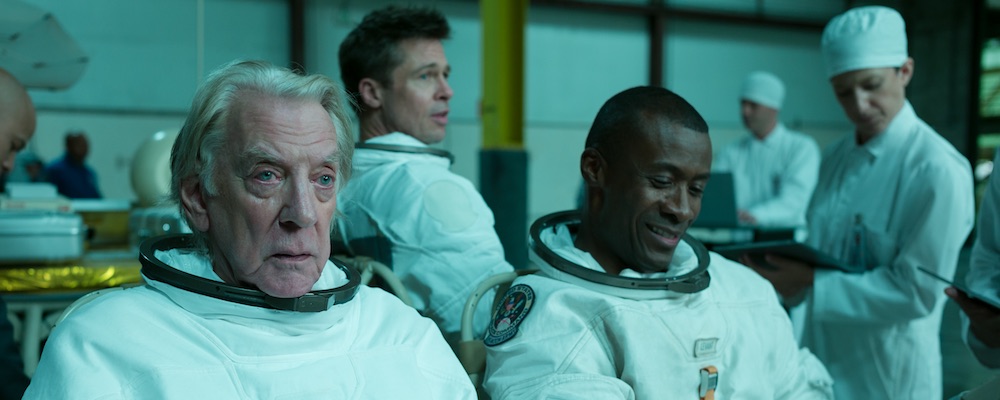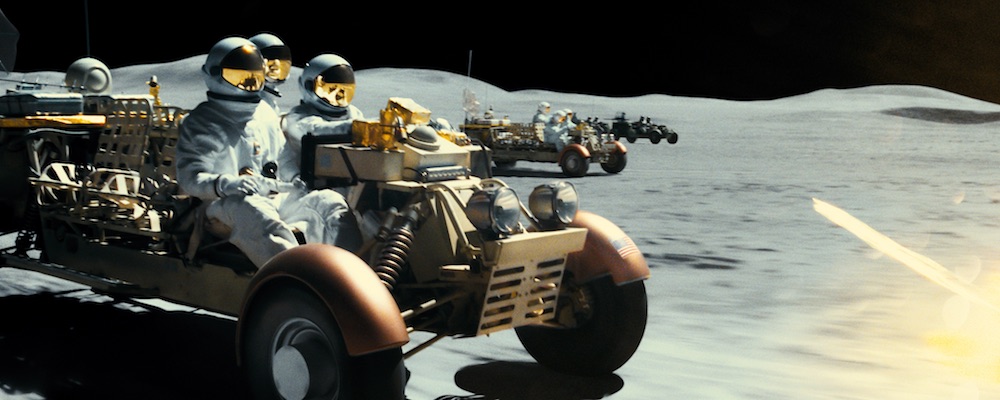Brad Pitt Goes on an Eloquent Journey Across the Stars in ‘Ad Astra’
Alci Rengifo
“Ad Astra” takes a cinematic journey deep into the cosmos but with a unique, introspective eye. There is something particularly bold about this film. It stars a major name like Brad Pitt, in the kind of role you assume you’ve seen countless other marquee actors inhabit, yet surpasses expectations. Instead of giving us another space opera or sci-fi action piece, “Ad Astra” prefers to explore realms of grandeur and deep psychology. The vistas are striking but it is the character’s inner turmoil that provides the real story.
Pitt plays astronaut Roy McBride, who tumbles back down to Earth after a power surge knocks him off the International Space Antenna. Called in by his superiors, McBride learns that energy pulses have been striking our planet from far away Neptune, causing havoc. The precise source of the pulses seems to be the last known area where a mission known as Project Lima was docked. For McBride the connection is very personal because the head of Project Lima was his father, a legendary astronaut named Clifford (Tommy Lee Jones), who became obsessed with finding extraterrestrial life. McBride is then tasked with a mission, head out to Mars to try and send a message to Clifford who hasn’t been heard from for nearly three decades. Has Clifford gone rogue? It’s up to McBride to find out as he goes on a long trek into space, facing his own memories and fears along the way.
For director James Gray, “Ad Astra” is an impressive return to form. A filmmaker of lush textures, Gray’s last epic, “The Lost City of Z,” was a great-looking but convoluted jungle adventure. He is much more at home with stories about the inner trials of individuals such as his vastly underrated 2013 drama “The Immigrant,” about an Ellis Island migrant who is pulled into the vaudeville world. Here the screenplay by Gray and Ethan Gross borrows from a classic narrative device famously used in stories and films like “Heart of Darkness” and “Apocalypse Now,” the man sent on a journey to track down a once brilliant, now rogue individual somewhere in the wilds. As in those stories colonialism and human conflict form a backdrop. Gray imagines the future with a vividness that gives it real plausibility. You can fly Virgin to the Moon, and once you get there the space station subtly features an Applebee’s and Yoshinoya. When McBride is escorted across a shadowy lunar surface to his ship the convoy is attacked by pirates seeking to steal resources and equipment, space has become the new battleground of a species that is territorial and fueled by greed. Gray films an action scene like this one with a subdued yet intense style. There is no sound in space, and so men in astronaut gear shooting at each other is framed with the music score by Max Richter providing the pounding tension. Richter, one of the great modern composers on and off the screen, creates elegant palettes of piano and then edgier waves of pure atmosphere.
Action in this film is momentary, never aimless and meant to provide small bursts of suspense within the wider journey. As McBride journeys off the Moon and towards Mars the trip becomes more about the thoughts and questions coursing through him. Flashbacks reveal he was once married to a beautiful woman named Eve, played by Liv Tyler. It was a marriage that couldn’t survive his devotion to his work, but her presence haunts him, as does the memory of his father. In the true fashion of a story on the move, various characters drop in that lead McBride further on his quest. There’s Colonel Pruitt (Donald Sutherland), who once worked with Clifford until the latter called him a traitor and hints to McBride his father might be insane. On Mars we meet Helen Lantos (Ruth Negga), born and raised on the red planet and now a government official responsible for its population, who wonders if a major conflict is brewing between Earth and wherever Clifford might be. Detours will reveal that space hides many dangers. McBride’s ship answers an SOS from another vessel where he finds a dead crew, attacked by rampaging baboons taken up there for who knows what purpose. We don’t actually need an explanation. It’s the power of the images that matters.
This is the second great performance by Brad Pitt for the summer following his role in Quentin Tarantino’s “Once Upon a Time in Hollywood.” While that was a role of subdued violence, this one feels even more personal. An actor must always work hard to create whatever character they inhabit. Pitt’s McBride is a contemplative man, lingering on the past and confronted now by a chance to revisit a broken bond. Pitt acts with near silence for much of the movie, delivering lines without ever raising his voice. Recordings of Clifford from the vast reaches of space have a ghostly quality, like the tapes Martin Sheen listens to of a missing Marlon Brando in “Apocalypse Now.” When Pitt finally reaches Clifford there is an exchange of such blunt honesty that all it takes is one tear to acknowledge the hard, emotional blow. The material is so rich in subtext that what began as a simple journey to find Clifford turns into a meditation on fathers and sons, obsessions and missing the real beauty in one’s life. Clifford overwhelmed himself seeking life in the cosmos, barely stopping to appreciate the breathtaking sights he came across.
Not only in the narrative but also visually, Gray goes for lush depths. His cinematographer is Hoyte Van Hoytema, who also shot Christopher Nolan’s wide space epic “Interstellar” and World War II opus “Dunkirk.” He shoots space as a vast canvas of limitless dimensions, where ships can become mere specs. The CGI and practical effects look organic, with a startling clarity best appreciated on an IMAX screen. Just notice the realism in the depth of field when Pitt climbs the space antennae in the opening scenes. Mars becomes a place of low-lit corridors cast in a reddish glow. Gray’s camera watches rockets blast off in near silence, space walks are more elegant than suspenseful. Even an astronaut gliding through a planet’s rings has an ethereal quality.
It’s almost a miracle that a major studio will still make this kind of project with a wide release. “Ad Astra” is not slow, but contemplative, it’s not action-packed but based on the tension of searching, haunted minds. It’s a unique experience and a must-see film.
“Ad Astra” opens Sept. 20 in theaters nationwide.




